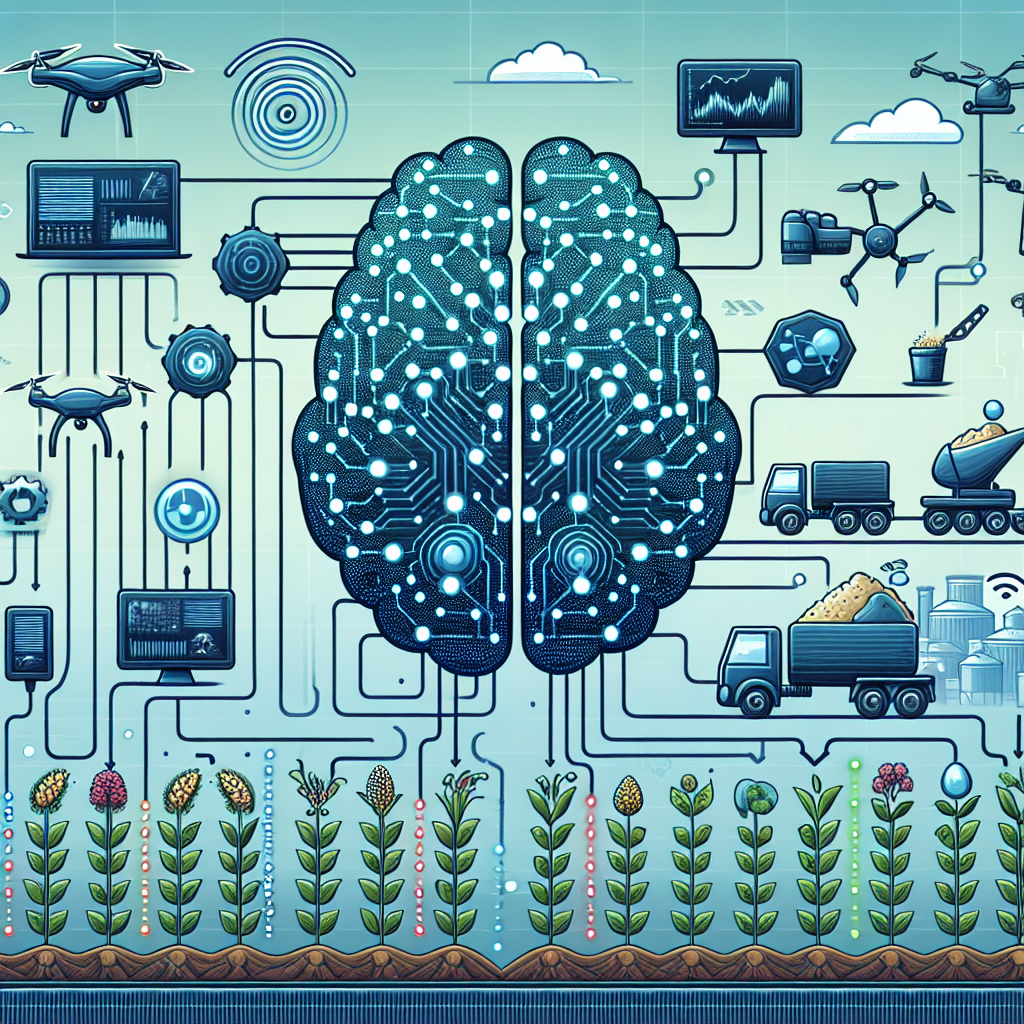The Impact of AI on Agricultural Supply Chains
In recent years, the use of artificial intelligence (AI) in various industries has been on the rise, and agriculture is no exception. AI has the potential to revolutionize the way we produce, distribute, and consume food, and its impact on agricultural supply chains is significant. From precision farming to predictive analytics, AI technologies are being used to optimize every stage of the agricultural supply chain, leading to increased efficiency, reduced waste, and improved sustainability.
One of the key areas where AI is making a difference in agricultural supply chains is in precision farming. Precision farming involves using data and technology to optimize the use of resources such as water, fertilizer, and pesticides, leading to higher yields and lower costs. AI technologies, such as machine learning algorithms and drones, are being used to analyze data from sensors, satellites, and other sources to make real-time decisions about planting, irrigation, and harvesting. This allows farmers to tailor their practices to the specific needs of each crop, leading to higher productivity and lower environmental impact.
Another way AI is impacting agricultural supply chains is through predictive analytics. By analyzing historical data and using algorithms to forecast future trends, AI can help farmers and food producers make better decisions about when to plant, harvest, and transport their products. This can lead to more efficient use of resources, reduced waste, and increased profitability. For example, AI-powered weather forecasting can help farmers plan their planting and harvesting schedules to avoid losses due to extreme weather events.
AI is also being used to improve the quality and safety of agricultural products. By analyzing data from sensors and other sources, AI algorithms can detect potential problems such as pests, diseases, and contamination, allowing farmers and food producers to take corrective action before they become serious issues. This can help reduce the risk of foodborne illnesses and other safety concerns, leading to higher consumer confidence and increased demand for agricultural products.
In addition to improving productivity and sustainability, AI is also helping to streamline the logistics of agricultural supply chains. By analyzing data from sensors, GPS systems, and other sources, AI can optimize the transportation and distribution of agricultural products, leading to faster delivery times, lower costs, and reduced waste. For example, AI-powered route optimization algorithms can help farmers and food producers plan the most efficient routes for transporting their products to market, reducing fuel consumption and emissions in the process.
Overall, the impact of AI on agricultural supply chains is profound. By harnessing the power of data and technology, farmers and food producers can optimize every stage of the supply chain, leading to higher productivity, lower costs, and improved sustainability. As AI technologies continue to evolve, we can expect to see even greater benefits for the agriculture industry and the global food system as a whole.
FAQs:
Q: How is AI being used in precision farming?
A: AI is being used in precision farming to analyze data from sensors, satellites, and other sources to make real-time decisions about planting, irrigation, and harvesting. This allows farmers to optimize the use of resources such as water, fertilizer, and pesticides, leading to higher yields and lower costs.
Q: How is AI helping to improve the quality and safety of agricultural products?
A: AI is helping to improve the quality and safety of agricultural products by analyzing data from sensors and other sources to detect potential problems such as pests, diseases, and contamination. This allows farmers and food producers to take corrective action before they become serious issues, leading to higher consumer confidence and increased demand for agricultural products.
Q: How is AI being used to streamline the logistics of agricultural supply chains?
A: AI is being used to streamline the logistics of agricultural supply chains by analyzing data from sensors, GPS systems, and other sources to optimize the transportation and distribution of agricultural products. This leads to faster delivery times, lower costs, and reduced waste.
Q: What are some of the challenges of implementing AI in agricultural supply chains?
A: Some of the challenges of implementing AI in agricultural supply chains include the high cost of technology, the need for specialized skills and training, and the potential for data privacy and security concerns. However, with the right investments and partnerships, these challenges can be overcome to realize the full potential of AI in agriculture.

